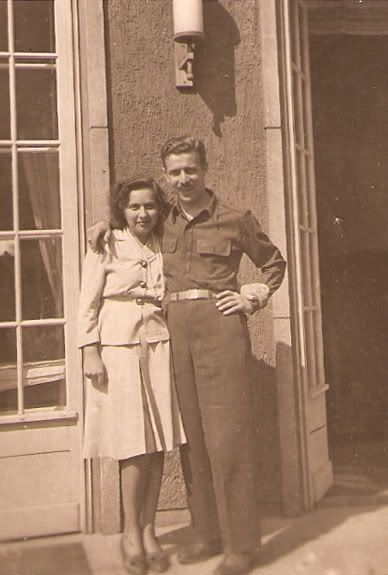A very interesting PhD supervision today about aphorisms. The dissertation is already written and is being revised. It includes a large number of aphorisms made up by the candidate himself.
The first and major part of the thesis consists of trying to isolate and describe an aphorism because, as the candidate argues, many things are referred to as aphorisms when they are not precisely so. There are a number of very similar or related categories including
precepts, maxims, sayings, gnomisms, apothegms, proverbs, idioms, mottoes, epigrams and so forth, from which the aphorism may be distinguished. Much effort goes into distinguishing. In the end all we seem to be able to say with certainty is that aphorisms are marked by brevity and disproportion between the saying and its import. This disproportion works, generally, because of the reference of the text to another, larger, more comprehensive text, whether that is literary or cultural. That is to say it conjures it.
But how does it do that conjuring? Isn't that the key question?
What, for instance, I ask, constitutes the journey between these various categories, and in what way does the journey to aphorism differ from the journey to a short lyrical poem? A short enigmatic poem by Blake might be instanced as possessing the power of and density - the sense of significance - of an aphorism, as might Jesus's suggestion that: "It is easier for a camel to go through the eye of a needle, than for a rich man to enter into the kingdom of God." (Matthew 19:24). Both would have a strong figurative basis. The poem is, of course, more metaphorical. metaphor, says Jakobson, is the essence of poetry. But it's the how of it that matters, surely? How do we get there? How does text lead us to context?
To put it very practically, on what basis would the candidate select his best aphorisms?
So we talk about such qualities as compression, synchronicity, elegance, wit, memorability, all of which may be required of poetry. But maybe synchronicity is less to be expected of an aphorism than of a lyric poem, which, Barthes tells us, is a single, indivisible signifier, that is to say an utterance chockful of synchronicity.
And what of the types of aphorism: the open, the closed, the witty, the 'philosophical'( yes, but what is it to be 'philosophical')? Now the candidate draws a line which divides into three (or more, for all we know). A class that subdivides into three at least.
It looks to me like a river with tributaries. But which of the tributaries is the river? Which bears the same name as the main river? Where is the source of our river? The Danube has at least two disputed sources as Claudio Magris writes. And what if the divisions were not tributaries but constituted a delta? So we have one original river which continues... where? And now it seems that it is a single body of water that is the subject, but a body to which we give various names as it divides. And if we only know one branch of the delta? Just one of the tributaries? Isn't that our condition, after all? Isn't that the language condition: names that offer the appearance of precision but are wholly dependent on interpretation and habit?
*
And that, I go on to suggest, is the trouble with the word
poetry. How often have I been through this with writers of novels who say that they are actually writing poetry, it's just that it is in the form of prose? We spent an entire conference in India discussing this. And certainly there is an area of experience we may call poetry.
It is with that experience I sometimes begin new classes. I ask them what is meant by the expression 'poetry in motion' or 'sheer poetry'? Does it require an actual poem? Is poetry in motion a ballet dancer? Could it not be a canoeist, or even a boxer? Is there pure poetry in the perfect punch? In the addressing of an envelope? In washing dishes?
And most people say, yes, there is poetry in most things and it consists of X and Y and Z, only the proportions of X and Y and Z vary according to the field in which the 'poetry' is perceived to exist. Poetry, in this sense, is an effect, not a poem. A poem is a piece of writing that strives to produce a poetic effect. But that is not to ascribe any particular characteristics to a poem. The poem might as well be anything else. The term shifts mischievously from object to subject. And what is more, we might not agree on the effect. What seems sheer poetry to me might seem leaden prose to you. How then can I begin to describe a poem, the poem-object, to you?
I could perhaps describe an object that we could agree to call verse, because verse has certain definable components. There is not much subjectivity involved in the iambic pentameter, for instance. We can isolate the term: it exists independently of our apprehension. Ten syllables with - in the English system - an unstressed syllable followed by a stressed one, five times in all, is an iambic pentameter. And so we can proceed with some degree of clarity. This is or is not an
anapaest. This is, or is not, a
rhyme. This is, or is not, a
sonnet?
Well, yes, once we get to sonnets and ballads we are dealing with conventions, and conventions can be modified and altered until it no longer makes any sense to call a particular piece of verse a sonnet. There would probably have to be a very last position, some outpost of definition which would allow us to call a poem a sonnet when it does not appear to possess some critical number of the characteristics of a sonnet. I don't quite know where that last position is, nor would I be expected to know, only to assert. That last term, that moment before the sonnet loses all contact with sonnetness is like the image of "the last visible dog" that Russell Hoban referred to in his 'The Mouse and His Child', that is to say the last dog visible on a tin of dog food that shows a dog looking at a tin of dog food, that shows a dog... etc. etc. There is, somewhere, a last visible dog.
That seems hopeless. Nevertheless, I suggest, we would be capable of giving a generic definition of the category,
sonnet, by simply adding the odd proviso. We would still have a dog, a sonnet, some notional object.
So let us say that a poem is a piece of verse that produces a range of effects that may be recognised as poetry. Recognised by whom? The 'best judges of the age'? The committee? Your sweet uncle Bertie? Who can tell. It will generally come down to the best judges on hand, those in whom you repose a certain conditional trust. You may not agree eve then. But you will, at least agree, that this is verse. Won't you?
So, I say, to the poetic novelist, let me talk about verse instead of poetry. Verse is what I write and you do not write. There are various existing descriptors of prose as there are of verse. Our words still mean something. The poetic effect? Well, let us discuss how it comes about in that piece of prose, weighing the X and the Y and the Z of it.
Does it matter? Yes, if you care at all for language, it does. It is, if you like, a question of integrity, without which nothing happens. Look, my very breath is poetry. It is just that you are not here to appreciate it. It's not verse though, not till I make it so.













